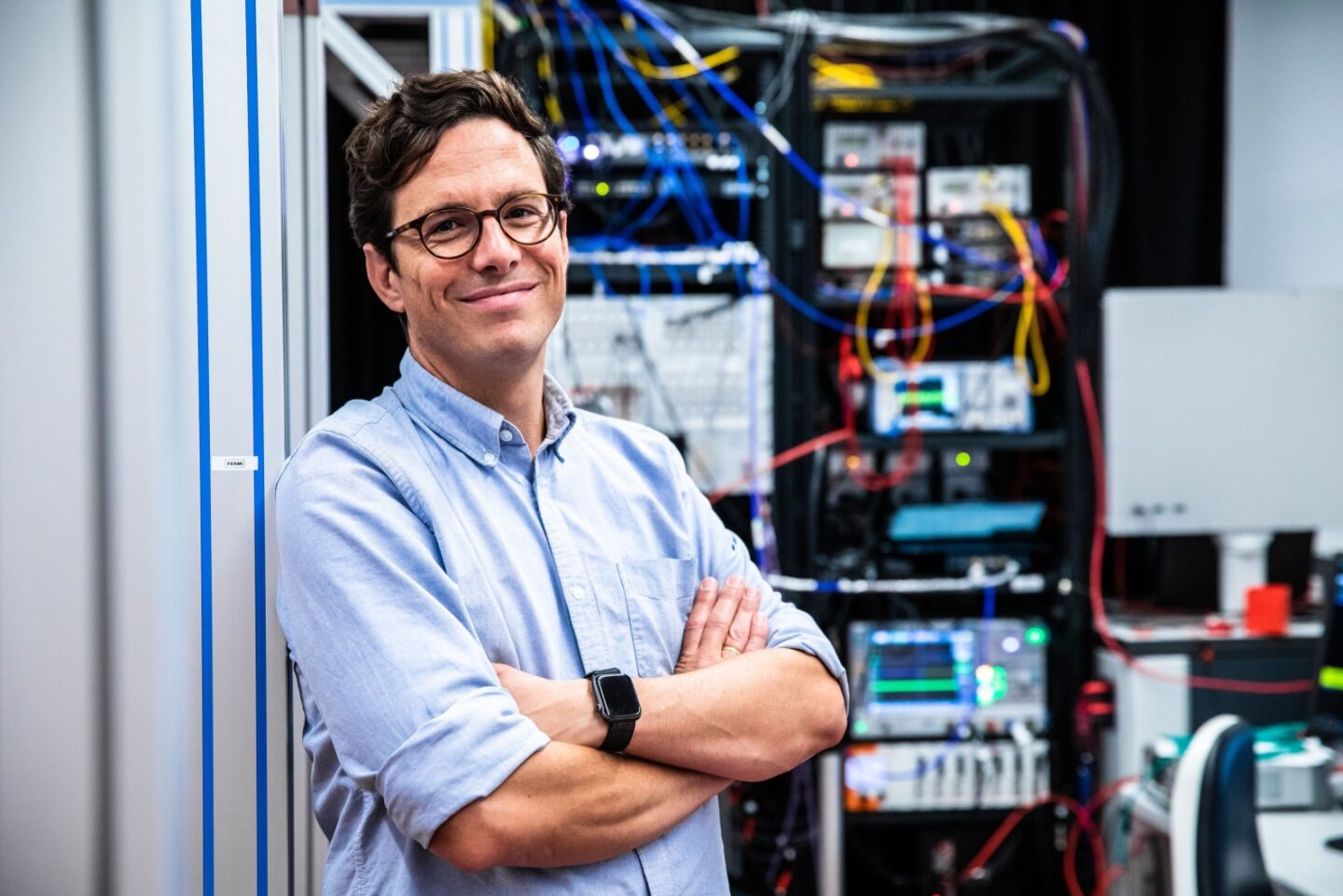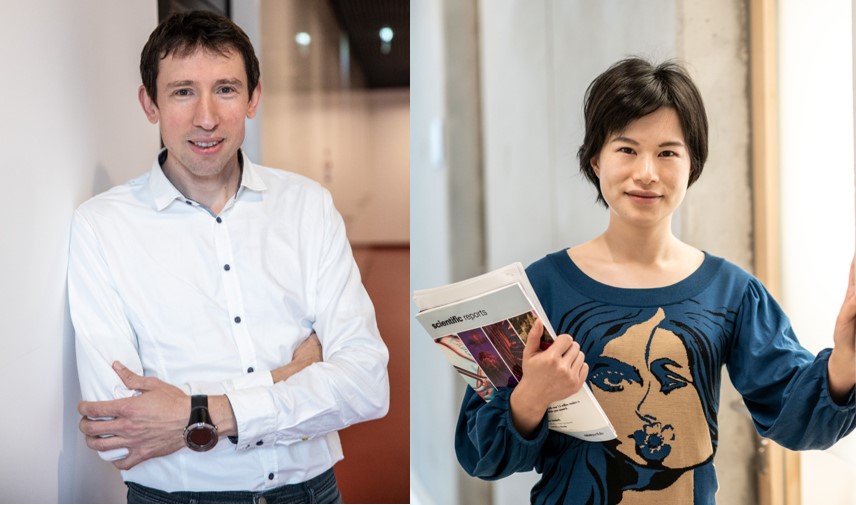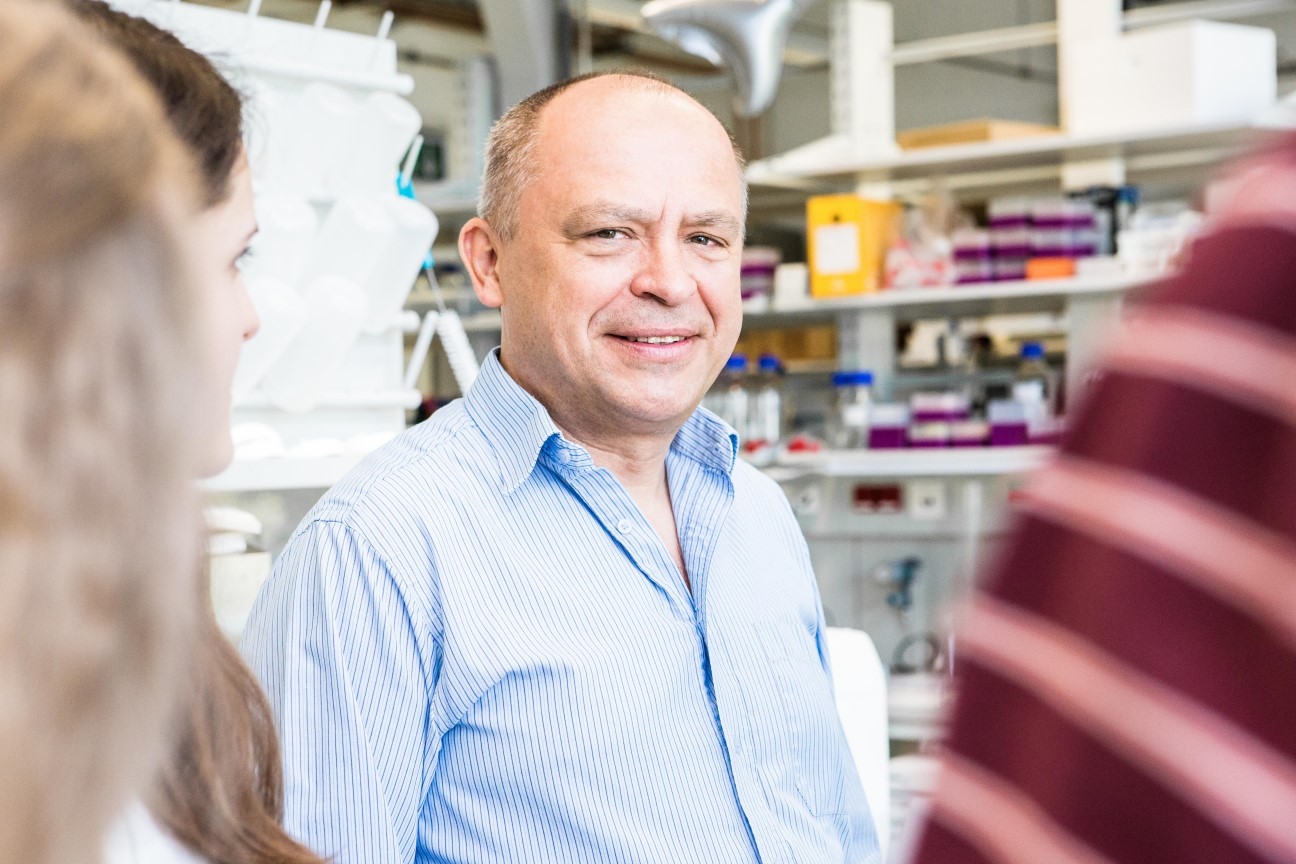March 13, 2023
ISTA in Three Clusters of Excellence
FWF awards funding for multi-institutional research collaborations including ISTA
To strengthen the research of national universities and institutes, the Austrian Science Fund (FWF) is kick–starting an ambitious funding campaign. Funding for five clusters of excellence provides long–term financial support for outstanding cooperative and interdisciplinary teams of scientists. Three projects include scientists from the Institute of Science and Technology Austria (ISTA).
Clusters of excellence are the first of three funding installments of the FWF’s “excellent=Austria” campaign, to improve Austria’s position as a country for top-notch basic research. A total of 135 million Euro is provided to research clusters in Austria that combine high-level research, research training, and the promotion of young scientists. Today, five proposals were awarded the highly anticipated FWF funding. Among the winners are three collaborative research projects with participation from ISTA.
quantA – Pushing the frontiers of quantum science

Over the years, Austrian scientists have had a major impact on the developments of quantum science. The cluster of excellence “quantA” brings together top-notch researchers from Innsbruck, Vienna, Linz and Klosterneuburg. Together, they try to answer a variety of key questions on the quantum nature, which will not only improve our understanding of the physical world but will also be the foundation needed for further progress in quantum technologies. Specifically, the relationship of quantum science with concepts such as gravity, information and matter will be investigated.
In quantA, ISTA is represented by Professor Johannes Fink—one of the board members—and key researcher Professor Maksym Serbyn. Fink explains his part in the project: “Our group will contribute by exploring hybrid quantum machines built from different hardware such as superconducting circuits, photons, ions, and spins. This is only possible in close collaboration with the top groups in the respective fields, and requires a sufficiently long-term setup.” The quantum science community at ISTA is also part of the cluster of excellence. This includes the groups of Andrew Higginbotham, Onur Hosten, Georgios Katsaros, and Mikhail Lemeshko with their research spanning through the above-mentioned topics.
MECS – Novel materials for energy storage

Materials for Energy Conversion and Storage (“MECS”) is a cluster of excellence between the TU Wien, the University of Vienna, the University of Innsbruck, and two ISTA scientists: Assistant Professors Stefan Freunberger and Bingqing Cheng. The project will tackle the continued combustion of fossil fuels and, thus, the emission of greenhouse gases. MECS is about materials that enable a renewable energy system by providing the required large-scale intermittent storage. Large-scale storage of renewable energy—present in the form of electricity from water, wind, or solar power plants—asks for novel chemical bonds between abundant elements. For this, the scientists propose two methods: The splitting of water into oxygen and hydrogen, as well as converting carbon dioxide (CO2) into higher-value chemicals and synthetic fuels. Their approaches will be CO2-neutral and intend to support a fossil-free society.
Stefan Freunberger, one of the Board Members of the cluster, explains: “The funding allows me to collaborate with the best Austrian researchers in the broader field of energy materials. With the combined expertise, we lift the scope and impact well beyond what a single or several groups could achieve. The goal is to achieve sustainable impact from basic science on society.”
microPLANET – The key to a healthy planet

Without microbes, life on our planet would not be possible. They form the foundation of the biosphere and colonize plants, animals, and us humans. Environmentally and medically relevant microbiomes have a lot in common, yet researchers studying these are traditionally separated, with progress in one area not being efficiently propagated to the other. Consequently, current attempts to manipulate the composition and function of microbiomes in a targeted manner in natural and man-made environments as well as in humans (gut microbiome) still show limited success. The cluster of excellence “microPLANET” will tackle these questions. It unites the strength across many Austrian researchers from seven research facilities studying microbial life with different approaches. Together, the scientists will enable conceptual and technological advances that transcend one research field and establish microbiome research as an integral core component of planetary health science.
ISTA Professor and Board Member of the cluster, Leonid Sazanov, is honored to be part of this project: “I’m excited to provide expertise in advanced structural biology, including cryo-EM, for the characterization of novel protein families in microbes. Many of these proteins are enzymes, which catalyze unique reactions—characterizing them would be key for understanding Nature’s catalytic repertoire. It may also help in the development of novel bioengineering approaches like environmentally clean hydrogen production or more efficient wastewater treatment.”



